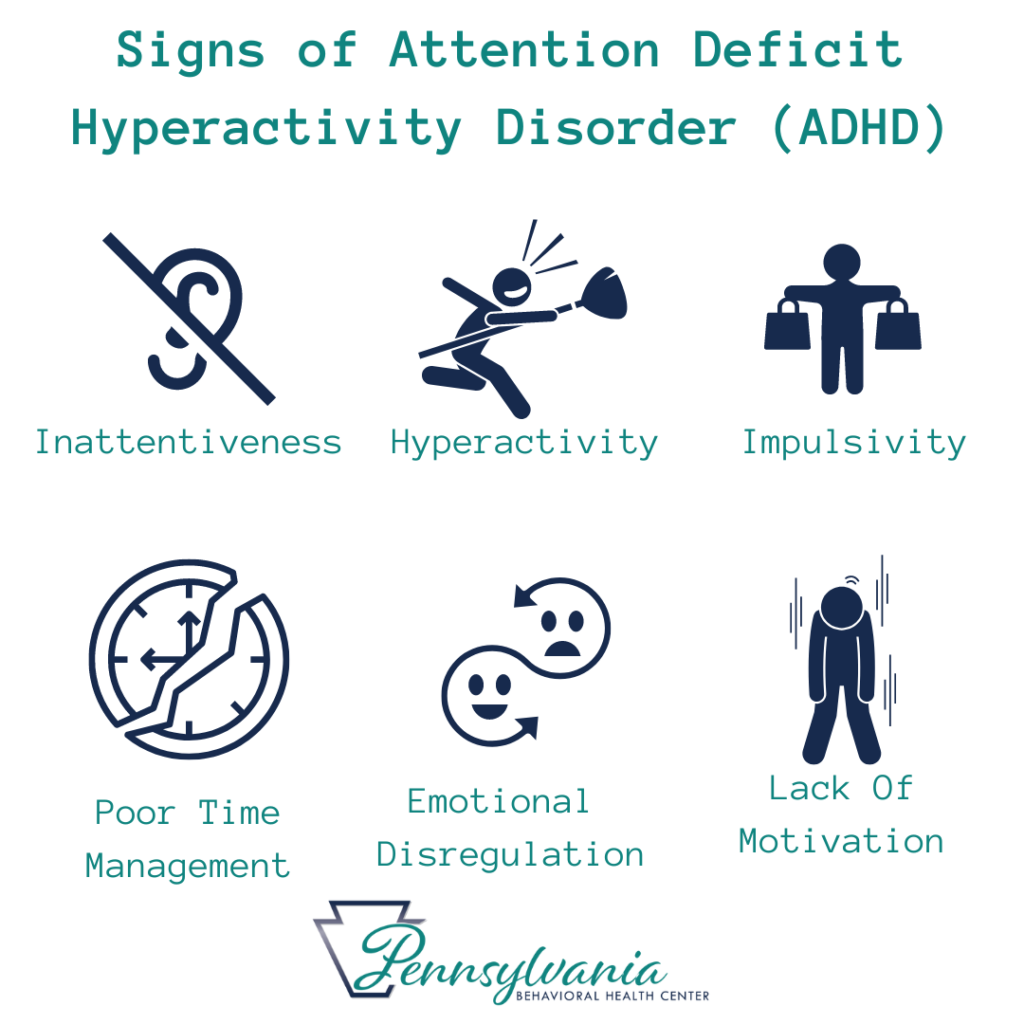Comprehensive ADHD Treatment for Improved Care
Comprehensive ADHD Treatment for Improved Care
Blog Article
The Benefits of Customized ADHD Therapy Strategies for Better End Results
The execution of individualized ADHD therapy plans has emerged as a crucial approach in improving therapeutic results for individuals affected by this problem (ADHD treatment). By acknowledging the special manifestations of ADHD in each individual, these tailored interventions promote better engagement and motivation, eventually leading to extra reliable coping strategies.
Comprehending ADHD Irregularity
Although Attention-Deficit/Hyperactivity Condition (ADHD) is frequently perceived as a single problem, its manifestations can vary dramatically amongst people. This irregularity is influenced by a series of variables, including age, gender, coexisting conditions, and ecological contexts. As an example, kids with ADHD may exhibit hyper actions, while adults may mainly battle with attention deficiencies. Gender differences likewise play a duty, as males are much more frequently diagnosed with ADHD and often show extra obvious signs, whereas females may present with less evident inattentiveness.
Additionally, people with ADHD might experience a range of emotional and behavioral obstacles, such as anxiety or opposite defiance, that can complicate diagnosis and treatment. It is also worth keeping in mind that ADHD can offer in different ways across different cultural contexts, influencing how signs are recognized and resolved.
Key Parts of Personalization
Customized ADHD treatment plans are based in a number of crucial parts that make certain reliable management of the problem. A detailed assessment is important, involving standardized ranking ranges, interviews, and behavioral observations. This complete analysis enables medical professionals to recognize the person's unique signs, strengths, and challenges.
2nd, the involvement of several stakeholders, consisting of parents, teachers, and the person, adds to an alternative sight of the person's demands. Collaboration promotes a helpful atmosphere that can adjust to the individual's context and lifestyle.
Third, treatment strategies ought to be flexible and versatile, enabling alterations based upon continuous feedback and the individual's progressing demands. This adaptability makes it possible for the assimilation of different healing techniques, such as behavioral treatments, psychoeducation, and medication management.
Moreover, social and contextual aspects should be taken into consideration. Identifying the individual's background, worths, and choices ensures that the treatment is pertinent and respectful.
Lastly, routine follow-ups and assessments are important to keep track of progress and make needed adjustments. By concentrating on these vital parts, individualized ADHD treatment plans can significantly enhance the performance of interventions, bring about enhanced results for people with ADHD.
Boosted Interaction and Inspiration
To effectively promote enhanced engagement and inspiration in people with ADHD, it is important to include approaches that resonate with their interests and strengths. Individualized therapy plans that line up with an individual's enthusiasms can lead to increased engagement in healing tasks, fostering a sense of possession and enthusiasm for the process.
Using interactive and innovative approaches can likewise dramatically improve inspiration. As an example, integrating gamification aspects or real-world applications of skills can make tasks much more appealing and relevant. This not only records attention but likewise strengthens learning with satisfying experiences.
Moreover, establishing attainable and significant goals customized to the individual can bolster motivation. When people see their progress in the direction of personally significant purposes, they are more probable to remain involved. Normal responses and recognition of accomplishments can additionally sustain motivation, creating a favorable responses loophole that urges ongoing initiative.
Finally, cultivating an encouraging setting where individuals feel comprehended and valued can substantially affect their interaction degrees. When therapy strategies are developed collaboratively, including input from the individual, they are most likely to feel spent in their journey, eventually leading to improved end results in taking care of ADHD.
Improved Coping Approaches
Establishing improved coping approaches is essential for people with ADHD, as it furnishes them with effective read this article tools to navigate daily difficulties. A personalized treatment plan permits the recognition of certain coping mechanisms tailored to the person's special demands and scenarios - ADHD treatment. Methods such as mindfulness, time administration skills, and business approaches can be incorporated into everyday regimens, promoting a sense of control and lowering anxiousness
Mindfulness techniques, including meditation and deep-breathing exercises, help individuals with ADHD concentrate their focus and manage their emotions. Time management techniques, such as making use of timers or damaging jobs right into smaller, manageable actions, can reduce sensations of look at this site bewilder. In addition, organizational tools like organizers and lists can improve effectiveness and accountability.
Lasting Favorable Outcomes
Executing tailored ADHD therapy plans can bring about considerable long-term favorable end results for people. These tailored methods, which consider unique symptoms, preferences, and life circumstances, facilitate more effective management of ADHD signs over time. By focusing on the particular demands of the individual, these plans boost adherence to therapy methods and foster higher interaction in restorative tasks.

Moreover, tailored therapy strategies can substantially minimize the risk of comorbid problems, such as stress and anxiety and clinical depression, which are frequently related to ADHD. Early intervention and constant support assistance people construct resilience and coping approaches, promoting overall mental health and wellness.
Inevitably, the long-lasting favorable results of individualized ADHD treatment intends not just improve the lifestyle for individuals however additionally add to their overall top article wellness and success in different life domains. This holistic technique highlights the importance of customized treatment in managing ADHD successfully.
Conclusion

Report this page